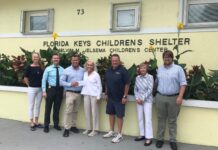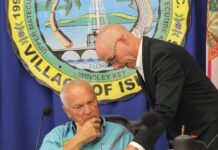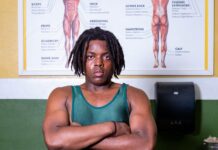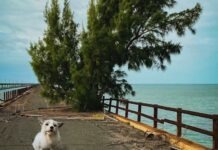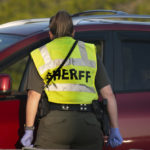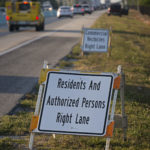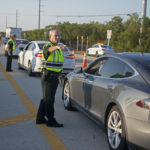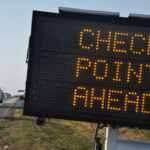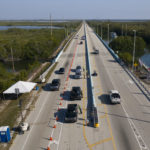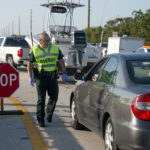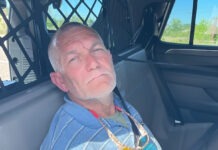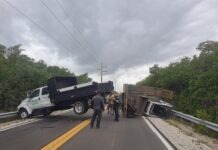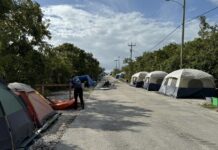The Florida Keys on Friday morning took another protective measure to keep visitors (and potential community-spread coronavirus) out of the island chain: they closed U.S. 1, and therefore the island chain, to non-residents.
By 7:30 a.m. on Friday, March 27, the Monroe County Sheriff’s Office and Florida Highway Patrol had established two checkpoints: one on the 18-Mile Stretch on US 1 and the other on Card Sound Road, near Key Largo. The checkpoints are purposely located inside the Keys, so as not to cause traffic jams in Florida City.
“We set this up so people understand we’re serious about this: if you don’t live here or work here, this is not the time to visit,” said Monroe County Mayor Heather Carruthers, who was on hand to answer questions about the checkpoints. “We’re trying to control the spread of the disease. Last week, we instituted a ban on visitors and tourists for the duration and we just want to make sure that people are getting the message.”
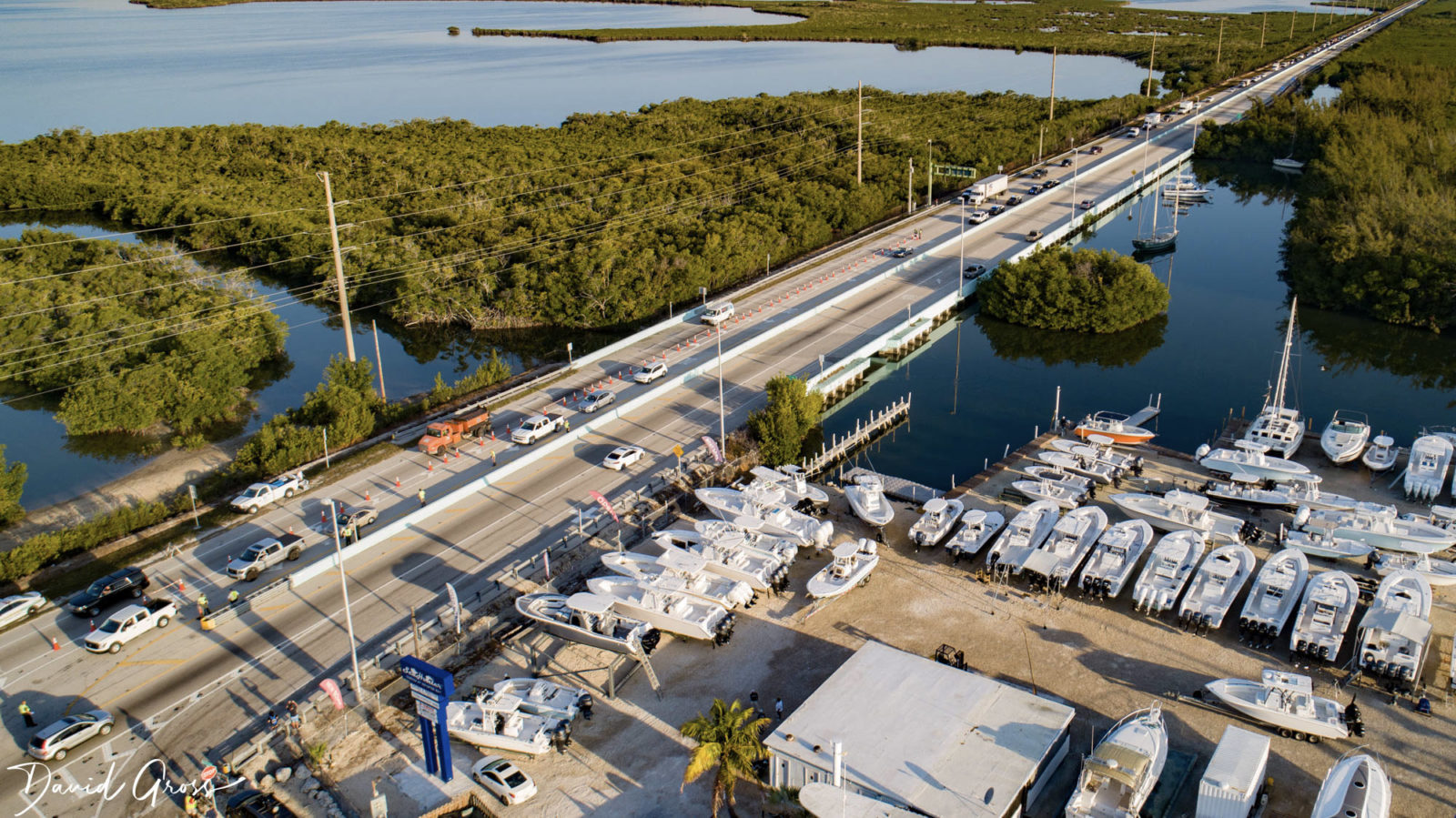
DAVID GROSS/Keys Weekly
Motorists coming southbound on U.S. 1 are asked for proof of county residency (driver’s license, hurricane re-entry sticker/placard, property deed/lease, utility bill) as they approached MM 112.5 near Manatee Bay. Non-residents actively engaged in work in the Keys can show a note from their employer on official letterhead. Delivery trucks are also permitted.
Adam Linhardt, spokesman for the sheriff’s office, explained, “We’re looking for compliance, not enforcement. If you have proof, you will get through.”
Linhardt reiterated the county’s goal: Keep out tourists and people who don’t have business here. He noted, “I already saw a couple of guys who wanted to go fishing, and we had to say, ‘Sorry, you have to turn around.’”
One non-resident who couldn’t find the deed for his Tavernier trailer was turned away. He pulled to the side, eventually found his paperwork and got back into the checkpoint line.
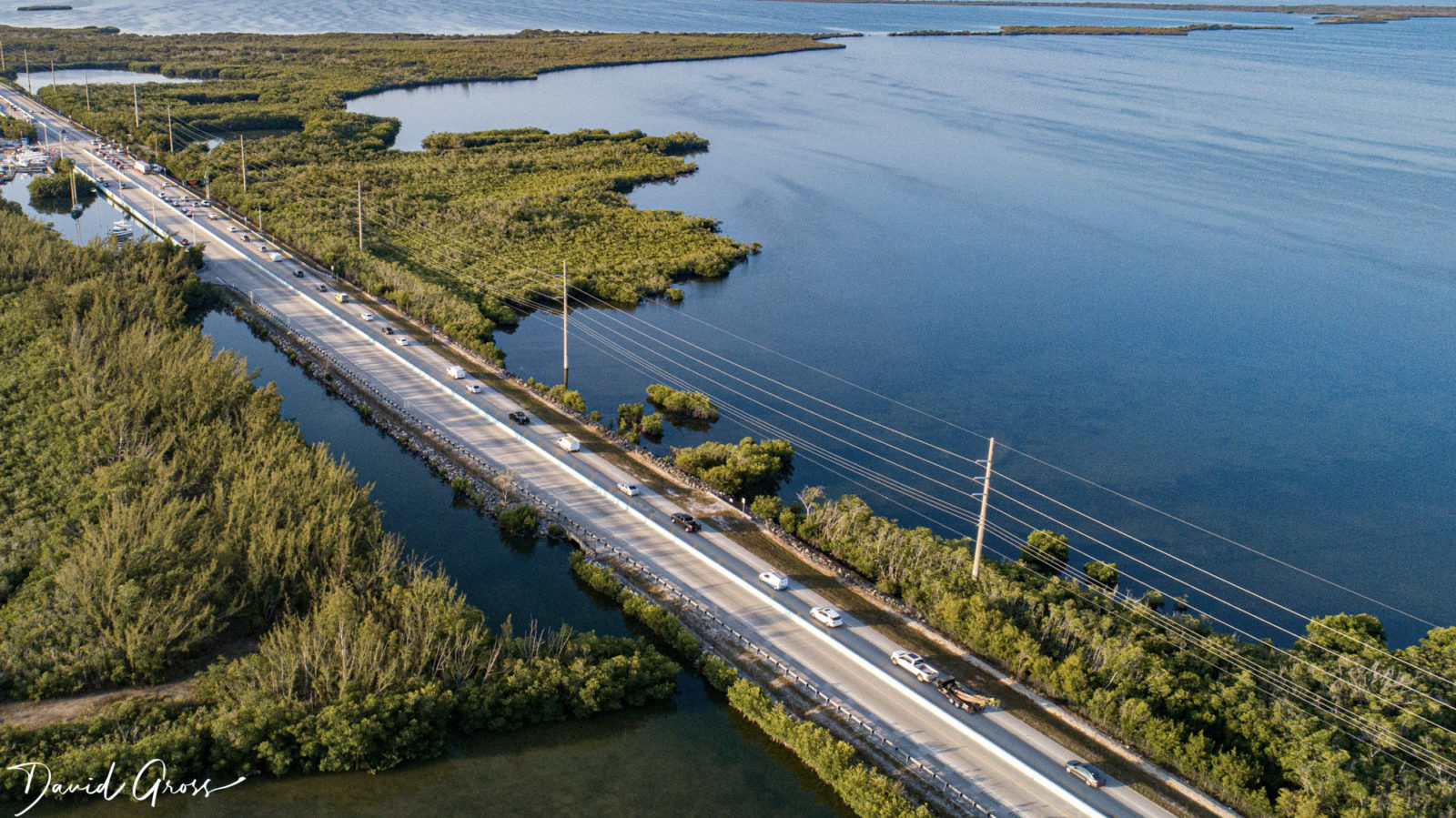
In the background, MCSO Capt. Leeann Holroyd instructed her colleagues, “Hurricane sticker, right on her windshield. She’s okay,” as she waved a resident through. After that, “One, two, three — all need to turn around. They have no papers.”
Sheriff Rick Ramsay noted, “The sheriff’s office is playing a supportive role. This is a decision by Monroe County Emergency Management for obvious health reasons.”
“So far it’s been very orderly. We’re doing our best to keep traffic flowing and make sure there are no backlogs. We’ve got a really good system in place, and it’s working so far,” Ramsay added.
“We asked the county early on to give us clear direction, so our guys and gals on the front line don’t have to interpret the regulations. If the person leaves, can they come back? The answer is yes. If the driver has a driver’s license and lives here and they have two passengers, can those passengers come in? They said yes,” Ramsay said. “We’re trying to make it simple for everybody.”
The checkpoints will be staffed 24/7 until further notice and are evaluated daily. The stops average about 20 to 22 turnarounds an hour.
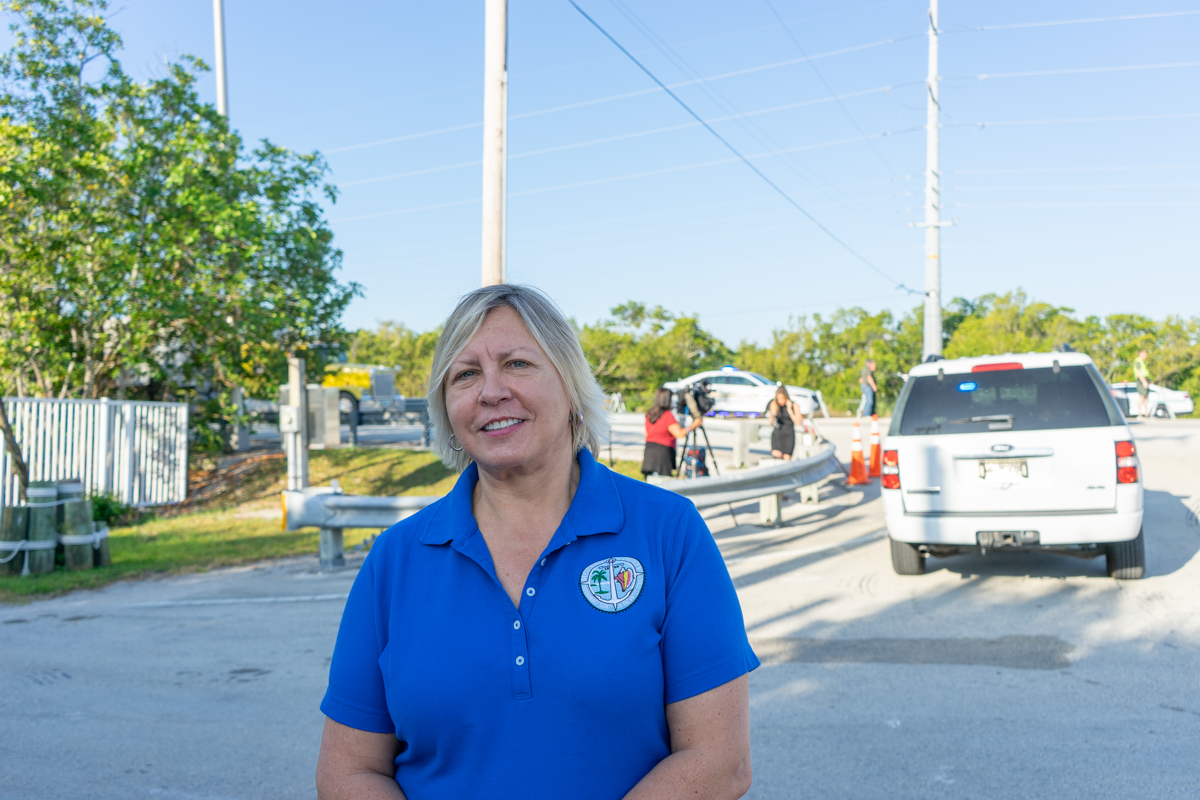
Carruthers noted that Monroe County’s COVID-19 infection rate was far less than that of neighboring counties, a factor that weighed in her decision to close the only two roads into the Keys. She said, “We’re running at about a less than 20% positive rate from the tests, and we hope to contain that. That’s precisely why we’re doing this. It’s our charge to protect our residents, and that’s what we’re trying to do.”
The mayor added, “Miami just did a stay-at-home declaration, so this is sort of our assistance with that. We’re gonna help you stay at home by taking away a little bit of the temptation to come to the Keys.”
Carruthers acknowledged the huge economic impact such closures have on the Keys.
“Our restaurants have been closed except for takeout. Our hotels are closed, and our economy is tourism-driven,” she said, but was quick to add, “But we’re very concerned about making sure this disease doesn’t spread within the Keys. In the long run, it will protect the economy by slowing the spread of the disease everywhere.”
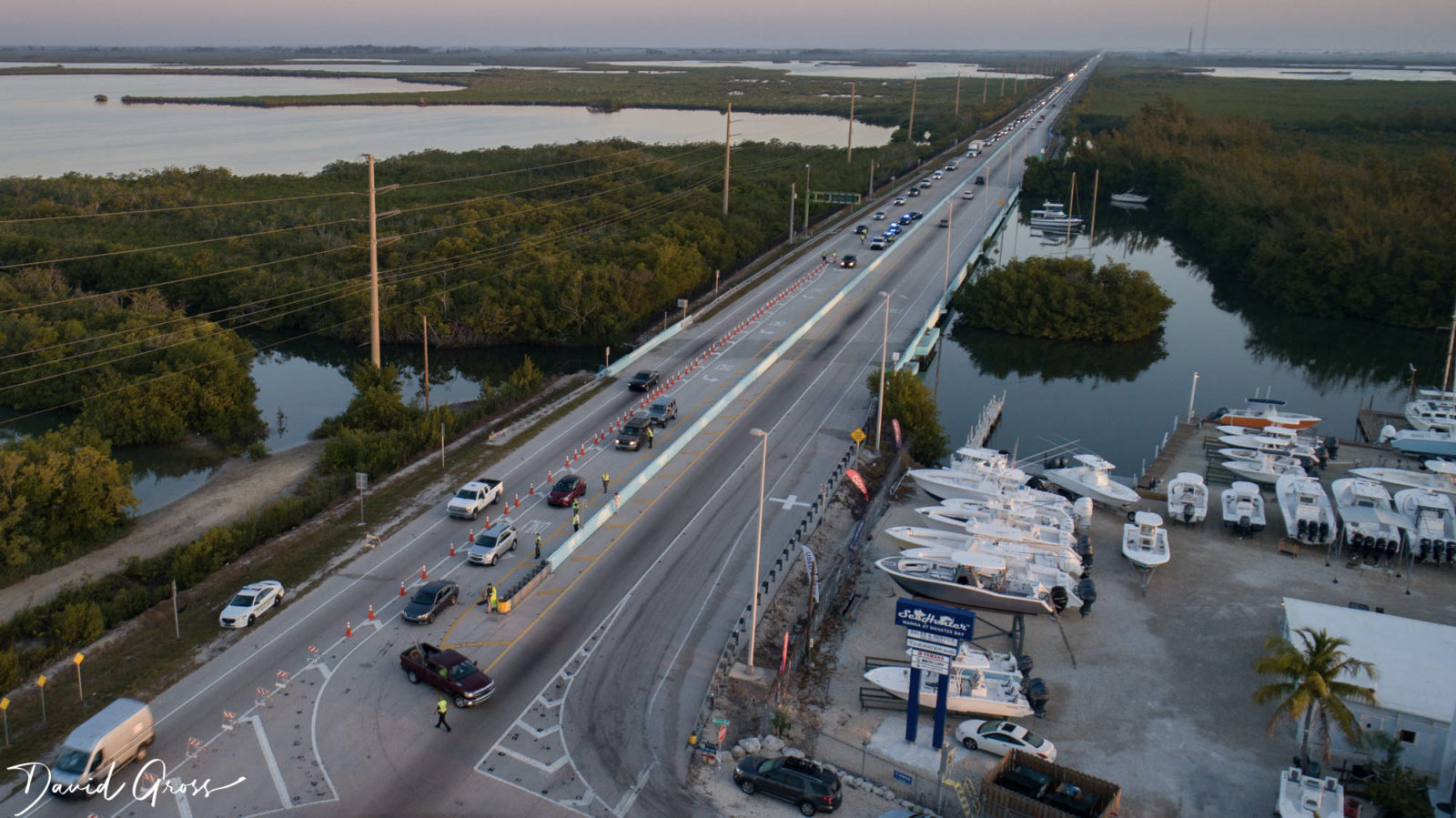
She noted, “Nobody in the world is happy about this, but it’s our reality. The sooner we stop the spread, the sooner we can all get back to work. So, that’s why we instituted this.”
As she concluded, a supportive resident of Manatee Bay was heading south in his truck toward Key Largo. He opened his window to express his gratitude to the mayor and nearby officers.
“Keys strong, baby,” he said. “Keys strong. Thank you for protecting us.”
Visit http://monroecountyem.com/covid19 for the list of ways to pass the checkpoint and for other coronavirus-related information from the county.
“We can’t get into 50 questions; it has to be black and white. If you meet these criteria, you can come in. If you don’t, you have to turn around.”
– Monroe County Sheriff Rick Ramsay








